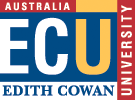COURSE INFORMATION
Disclaimer
This course information may be updated and amended immediately prior to semester. To ensure you have the correct outline, please check it again at the beginning of semester.
| K05 Bachelor of Science (Biomedical Science) | |||||||||||||||||||||||||||||||||||||||||||||||||||||||||||||||||||||||||||||||||||||||||||||||||||||||||||||||||||||||||||||||||||||||||||||||||||||||||||||||||||||||||||||||
The Bachelor of Science (Biomedical Science) is specifically designed to provide the knowledge, skills and attributes required to prepare graduates for professions in Biomedical Scientist. This course provides the theory and practical experience and knowledge necessary for graduates to gain employment, and where appropriate, be registered in the Biomedical professions. Biomedical science is a continually changing, dynamic profession with long term career prospects including management, research, education and specialized laboratory work. Biomedical Scientists are employed in a variety of roles. Biomedical Scientists perform a key role within medical healthcare that offers career satisfaction for many in the profession Biomedical Scientists learn skills and gain qualifications that can be transferred and recognized worldwide. Students must also have good knowledge and the confidence to operate complicated computerized equipment. The curriculum will include units in the following areas: Anatomy, Physiology, Microbiology, Immunology, Pharmacology and Biomedical Ethics. After graduation biomedical scientists then go on to specialize in one of the following laboratory disciplines: Medical Microbiology, Clinical Chemistry, Transfusion Science, Haematology, Histopathology, Cytology, Virology, Immunology, Medicine.
Our students have recently found employment in the following positions: Audiology, Biochemistry Technician, Cardiology Technologist, Chiropractic, CSI (Crime Scene Investigator), Doctor, Haematology Technician, Histology Technician, Laboratory Manager, Medical Practitioner, Medical Specialist, Medical Representative, Medical Research, Medical Imaging, Microbiology Technician, Metabolism Consultant, Paramedicine*, Pathology, Pharmaceutical Representative, Phlebotomist, Physiotherapy, Podiatry, Radiographer, Sleep Technologist, Specialist Nursing, Surgeon and Teaching.
Students interested in becoming paramedics should note there is a 10 unit Major in Paramedical Science available for study with this degree. Contact the course coordinator for more information. Students electing to enrol in the Major in Paramedical Science should be aware that this major is 150 credit points and will take the student 30 credit points over the 120 credit points required.
|
|||||||||||||||||||||||||||||||||||||||||||||||||||||||||||||||||||||||||||||||||||||||||||||||||||||||||||||||||||||||||||||||||||||||||||||||||||||||||||||||||||||||||||||||
| ADMISSION REQUIREMENTS Standard university admission requirements. |
|||||||||||||||||||||||||||||||||||||||||||||||||||||||||||||||||||||||||||||||||||||||||||||||||||||||||||||||||||||||||||||||||||||||||||||||||||||||||||||||||||||||||||||||
| COURSE LOCATION This course is available on Joondalup Campus. |
|||||||||||||||||||||||||||||||||||||||||||||||||||||||||||||||||||||||||||||||||||||||||||||||||||||||||||||||||||||||||||||||||||||||||||||||||||||||||||||||||||||||||||||||
| MODE OF STUDY This course is available by Full-time, or Part-time mode. |
|||||||||||||||||||||||||||||||||||||||||||||||||||||||||||||||||||||||||||||||||||||||||||||||||||||||||||||||||||||||||||||||||||||||||||||||||||||||||||||||||||||||||||||||
| MODE OF DELIVERY This course is available in the following mode of delivery - On-campus. Some units are available off-campus. |
|||||||||||||||||||||||||||||||||||||||||||||||||||||||||||||||||||||||||||||||||||||||||||||||||||||||||||||||||||||||||||||||||||||||||||||||||||||||||||||||||||||||||||||||
| COURSE STRUCTURE This is a 360 credit point course, consisting of 240 credit points of Biomedical Science core units (16 units) and 120 credit points consisting of a Major or a Minor, plus two Electives (8 units). Students may also undertake a Major in Paramedical Science (MABUTA, which is 150 credit points, 10 units) and are advised to contact the Course Coordinator of Paramedical Science to discuss unit selection. |
|||||||||||||||||||||||||||||||||||||||||||||||||||||||||||||||||||||||||||||||||||||||||||||||||||||||||||||||||||||||||||||||||||||||||||||||||||||||||||||||||||||||||||||||
| |||||||||||||||||||||||||||||||||||||||||||||||||||||||||||||||||||||||||||||||||||||||||||||||||||||||||||||||||||||||||||||||||||||||||||||||||||||||||||||||||||||||||||||||
Last Updated - Higher Education: 7/12/2011 VET: 7/12/2011
